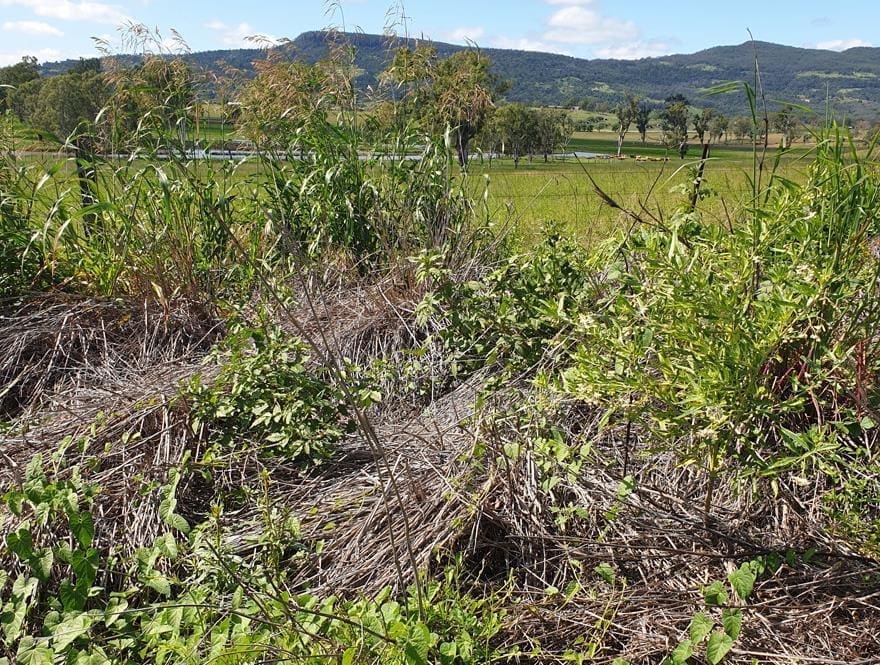
Pasture dieback in Queensland, summer growing native and sown grasses turn yellow and red, become unthrifty and eventually die.
THE first NSW case of pasture dieback, which kills sown and native summer growing grasses, has been identified on the state’s North Coast.
NSW DPI Pasture Systems development officer, Sarah Baker, said it’s important to identify where pasture dieback is occurring to determine its spread and impact.
“We aim to provide producers with the information they need to understand, recognise and manage the condition,” Ms Baker said.
“Pasture dieback causes summer growing grasses to turn yellow and red, lack thrift, and eventually die.
 “Cases of suspected pasture dieback were reported during the 2018-19 summer, but with drought masking the condition, confirmation was impossible at the time.
“Cases of suspected pasture dieback were reported during the 2018-19 summer, but with drought masking the condition, confirmation was impossible at the time.
“Recent rainfall has assisted us in identifying dieback, which previously had been found only in Queensland.”
It has been estimated the affected area in Queensland is at least 200,000 hectares and could cover up to 4.4 million hectares, with the cause still to be confirmed.
While control options remain dependant on identification of the cause, producers can continue to maintain production with broadleaf species, including legumes and brassicas, which are not affected by dieback.
Re-sowing perennial grasses into dieback affected areas is not recommended. However, annual winter growing forages, including oats and dual-purpose cereals can help fill winter feed requirements.
NSW DPI is working with the Queensland Department of Agriculture and Fisheries, University of Queensland, Queensland University of Technology and industry, through Meat & Livestock Australia, to explore the cause of the condition.
As researchers work to better understand pasture dieback, including investigations of insect involvement, NSW DPI is developing options for future management.
- More information is available from the NSW DPI website, click here to view.
- Producers should contact NSW Department of Primary Industries (DPI) or the Exotic Plant Pest hotline,1800 084 881 if they suspect their pasture has the condition.
Source: NSW DPI
